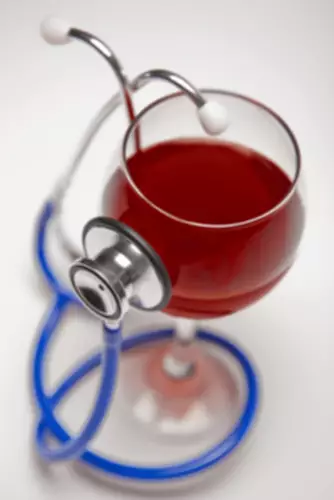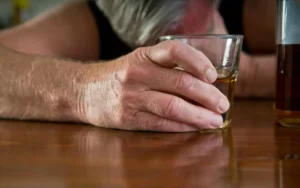Brain fog, fatigue and fear of crowds: COVID survivors talk about post-pandemic life

I never calculated exactly how many units I was consuming, I was aware it would be well over the 14 recommended a week for women, and it would have scared me, so I pushed it to the back of my mind. It’s an ugly word laden with such stigma, one I reserve for the people who were pouring Bailey’s on their cornflakes. 3The amount of alcohol needed to cause this effect depends on the person.
What to know about alcohol and brain damage
By ensuring a safe and supportive environment, we can help alleviate the challenges of brain fog and memory issues, enhancing your loved one’s quality of life at home. Research shows it can help people maintain a healthy weight, prevent heart attacks, strokes, and type 2 diabetes, and reduce the risk of premature death. “I’m drinking far more than is good for me and it’s affecting my life,” I cried. “I’m sick and tired of feeling sick and tired all the time.” Just getting those words out felt a huge relief. Brain electrical activity measured as event-related potentials (ERPs) in response to target stimuli (which require the subject to respond in some way) and nontarget stimuli (to be ignored by the subject). The brains of alcoholics are less responsive than the brains of nonalcoholic control subjects.
Other Common Causes of Brain Fog from Alcohol
Brain fog occurs when a medical condition impedes a person’s ability to think clearly. It is not a medical condition in and of itself, so a doctor cannot diagnose a patient with brain fog. Alcohol brain fog is just as common, and it can be devastating for the recovery process. Alcohol increases the effects of gamma-aminobutyric acid (GABA), for example. This causes sluggish movement, slurred speech, and slow reaction time when you are drunk.
How Long Does Brain Fog Last After Quitting Alcohol?

During cognitive-behavioral therapy, a person will work with their therapist to identify the thought patterns that trigger their anxiety and alcohol use. A person may think they have alcohol brain fog damaged their brain or need alcohol in order to think, which can trigger a relapse. Alcohol lowers inhibitions and clouds judgment, which may lead you to engage in risky behaviors.

It’s not unusual to experience brain fog after a night of drinking. Brain fog, or mental fog, is often described as feeling mentally drained and unable to concentrate. Signs of brain fog include reduced cognitive functioning or difficulty with paying attention, keeping focus, multitasking, and memory recall.
In 2020, she won a Pulitzer Center Fellowship to report on the mental health of Chinese immigrant truck drivers. Idaho resident Danielle Terhaar told the Idaho Statesman that her mental health was “horrible for a couple of years,” but she now has a more “resilient perspective.” Data from the National Institutes of Health shows that while frontline workers are more than four times more likely to have suffered from post-traumatic stress, 21% of the adult public have also reported symptoms. Studies on the impact of long COVID are few and far between because of the small amount of time since the pandemic began, but the NIH found that about 10% of people who initially caught COVID-19 now suffer from long COVID.

Prioritize sleep

Evidence for human consumption of alcohol dates back over 10,000 years. Consumption of alcohol has and continues to serve major roles in religious and cultural ceremonies around the world. But unlike most food products, in the last century, alcohol has been wrapped up in nearly perpetual controversy over its moral effects and health implications. And if you have one too many alcoholic drinks, you may start to slur your speech and have trouble walking in a straight line — and that’s all before dealing with a hangover the next day.
Neuroscience: The Brain in Addiction and Recovery
Things came to a head in March 2022, when I was eventually signed off sick with depression and menopause symptoms. It was one Sunday night when I was home alone and sober when I saw a Facebook advert pop up for a course called Just The Tonic, grateful that my online algorithms had clearly clocked that I was curious. I secretly listened to podcasts about quitting and bought a book, which admittedly was used just as a coaster on my bedside table.
- Heavy drinking slows the cerebral cortex, which takes in and processes new information in your brain.
- Stay active and aim for 150 minutes of moderate-intensity physical activity per week, if you’re healthy.
- Continuing to drink despite clear signs of significant impairments can result in an alcohol overdose.
- In fact, 1 in 8 deaths in Americans aged is attributable to alcohol use.
- You never have to say forever, but if you are sober curious or considering stopping drinking set yourself a temporary challenge to see how you can feel better without it.
- However, there are many ways to manage brain fog, including getting adequate sleep, nutrition, and social time; managing stress; and addressing any underlying contributing factors like ADHD or depression.
- Brain fog is a temporary condition that can make it difficult for you to concentrate, recall or retain information, and complete tasks.
- Some investigators have hypothesized that functions controlled by the brain’s right hemisphere are more vulnerable to alcoholism-related damage than those carried out by the left hemisphere (see Oscar-Berman and Schendan 2000 for review).
- These people usually require professional medical attention to be treated effectively.
I also started keeping a “brag book”, writing down three things a day I was proud of, even if it was just putting on a wash or cooking dinner. By the end of the course, I’d achieved the 30 alcohol-free day challenge, and treated myself to a speedboat on the Thames, followed by a meal at Hawksmoor, and then Abba Voyage at the O2. My 100-day gift to myself was a saxophone, which I’d always wanted to learn. We realised together that after a week of not drinking wine, we could smell it and decide it actually tastes quite foul – but we’d got used to insanely “ploughing on with it” anyway.



Leave a Reply